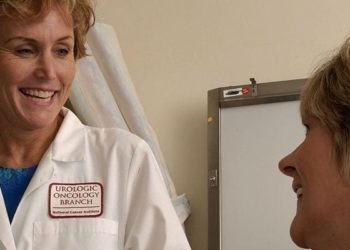Association of rapid eye movement sleep with mortality in middle-aged and older adults
1. Decreasing amounts of REM sleep was associated with an increased risk of all-cause mortality.
2. The most profound risk was seen among individuals experiencing less than 15% REM sleep at night.
Evidence Level Rating: 2 (Good)
Sleep disturbances affect tens of millions of adults each year, contributing significantly to the global burden of disease. Numerous studies have linked decreased sleep to mortality. Less, however, is known about how the proportion of time spent in rapid eye movement (REM) sleep and non-REM sleep stages (N1, N2, and N3) contribute to disease patterns, though it is well-established that decreased REM sleep is associated with poorer mental and physical health. This cross-sectional study of two independent cohorts – 2,675 patients (mean [SD] age at baseline = 76.3 [5.5] years, 100% male, 91.5% white) from the Outcomes of Sleep Disorders in Older Men (MrOS) Study and 1,386 patients (mean [SD] age at baseline = 51.5 [8.5] years, 54.3% male, 94.6% white) from the Wisconsin Sleep Cohort (WSC) – evaluated the relationship between time spent in REM sleep and mortality. The WSC cohort was younger, had a mix of men and women, and had more obesity, among other differences. The percentage of time spent in REM sleep was similar across the two cohorts, 19.2±6.6% among the MrOS group and 17.6±6.5% among the WSC group. Among the MrOS group, every 5% reduction in REM sleep was associated with a 13% higher rate of all-cause mortality (HR 1.13, 95% CI 1.08 to 1.19) after adjustment, the significance of which persisted for cardiovascular-related morality but not for cancer-related morality. Individuals experiencing less than 15% REM sleep per night had a significantly higher risk for all mortality definitions studied. Among the WSC cohort, the significant increase in all-cause mortality with reduction in REM sleep was also seen (HR 1.17, 95% CI 1.03 to 1.34) despite the differences in baseline characteristics. This robust study across two independent cohorts revealed an association between the amount of time spent in REM sleep and mortality, highlighting the need for clinical strategies to preserve and promote REM sleep.
Click to read the study JAMA Neurology
Image: PD
©2020 2 Minute Medicine, Inc. All rights reserved. No works may be reproduced without expressed written consent from 2 Minute Medicine, Inc. Inquire about licensing here. No article should be construed as medical advice and is not intended as such by the authors or by 2 Minute Medicine, Inc.







